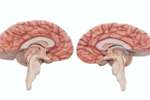“My hand is asleep” is a common enough thing, but when you start to get that pins-and-needles feeling regularly or during routine activities, it could be a sign of nerve damage. There are billions of nerve cells in the body, and when there’s an issue, they give off different signals. Tingling sensations can mean weakness, sharp pains, or numbness, and getting a proper diagnosis can be the key to finding relief.
Common Nerve Issues
If you start feeling tingling in the limbs, there are a few common issues that could be the culprit. These are peripheral neuropathy, ulnar neuropathy, and carpal tunnel. The peripheral nervous system transmits information from the body to the brain, and when the nerves become damaged, it can cause numbness or prickling feelings in the hands or feet that begins to travel up the arms or legs. As this happens, people frequently experience burning or stinging pains in the muscles, sometimes leading to weakness or loss of balance. The most common cause of peripheral neuropathy is diabetes, but inflammatory illnesses and vitamin deficiencies can also lead to peripheral nerve damage. Treatment may include medication to manage the pain.
Ulnar neuropathy, also known as cubital tunnel syndrome, is when the ulnar nerve in the arm gets compressed or entrapped. The ulnar nerve travels from the neck down the arm and into the hand and can become compressed at several places, but the most common spot is the “funny bone” or behind the inside part of the elbow. The compression or inflammation is usually due to repeated trauma to the nerve or scarring. Tingling in the hands and fingers is typical and is sometimes accompanied by pain in the elbow and forearm. Ulnar neuropathy can usually be treated with a change in activities and a padded brace.
Carpal tunnel syndrome refers to damage to the median nerve that travels from the arm to the hand through the wrist. The symptoms of carpal tunnel include tingling or pain that awakens you at night. The feelings are described as pins and needles or electric buzzing and gets worse when gripping things like the steering wheel. Carpal tunnel syndrome can be significant enough to make everyday activities that involve small hand movements difficult—things like brushing teeth, holding a fork, or opening a jar. Carpal tunnel is often treated through conservative means like bracing or physical therapy. Medications and sometimes surgery are needed.
Diagnosis
Diagnosis of hand tingling usually involves an examination to review medical history and symptoms. This is often followed by testing, which can include blood tests to determine if there are vitamin deficiencies, diabetes, or any other underlying conditions. You doctor may check the sensations in the hand and fingers or test the muscle strength to determine if there is any weakness. Nerve conduction studies and EMG can help measure the nerve impulses and test to see if the nerves are healthy. In some cases surgery on the nerve is necessary to resolve the problem, and the diagnostic testing, as well as attempted treatment, can help make that determination.
As you can see, there are many reasons you may be experiencing tingling in your extremities, and most of the reasons can be resolved with a conservative treatment. It is in your best interest to visit a doctor if you have any sort of tingling to get relief and make sure it’s not something serious. NS2 can help evaluate your symptoms, do any necessary testing, and implement an appropriate treatment strategy, including surgery. Make an appointment with NS2 today.






